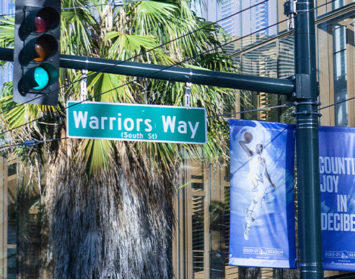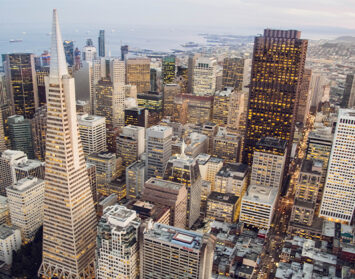Sometimes, we who live and work in San Diego, especially in the metropolitan area, become so entranced by our city’s special charm, the weather and so many other amenities we take for granted that we risk becoming insensitive to problems that can begin to work against the singular factor that makes it all happen: economic development.
First, some context. No city I know of is immune to the problems of traffic, steady doses of air pollution, crime and a variety of other assorted social ills. No city in California escapes the continual barrage of bitter anti-business legislation spewing out of Sacramento that seems hell-bent on driving California businesses to Paducah, Kentucky, Okmulgee, Oklahoma and other God-forsaken environs that now beckon our employers. Most cities in our state with any curb appeal must deal with the migration of illegal — oops, “undocumented” — immigrants and the lingering housing crisis, whose factors are better explained by housing industry advocates.
That said, we can’t ignore those problems simply because other locales share them. They require our continuing attention and our leaders’ skillful commitment to do what’s possible to solve or minimize them.
Equally, if not more important, however, are the special problems we have in San Diego that, left unattended, can negatively affect our city’s image and, therefore, its economic future.
What concerns me is that we tend to look at and try to deal with problems one by one as they surface. Each one recedes unsolved for the time being while another crisis “du jour” emerges. We are not looking at them together to assess their collective impact, despite the fact that people whose companies and businesses we want to lure to San Diego do look at community issues collectively.
So, we need to bundle up some of the more pressing issues — in no particular order — that are impacting our city’s image to see what others see when they examine San Diego.
First, no one would ignore our local political storms, roiled, by and large, by the city’s fiscal calamities. Barely one year into a strong-mayor form of governance, our City Council and mayor are quarreling bitterly over various control issues too numerous and timely to try to recap here. The financial woes are sufficiently large in the minds of some so as to render the city insolvent. It makes great fodder for newspaper and TV coverage, but it’s bad karma for anybody looking to present our city in its best light.
That political brouhaha doesn’t even take account San Diego’s elected city attorney, whose almost daily media diatribes routinely include accusations of wrongdoing and abject neglect on the part of most of the City Council. Left unchecked, it suggests our city’s political leadership is infested with criminals. Not that we are totally immune from others reaching that conclusion, considering our city’s “Strippergate” episode in which three council members were tried for taking bribes a couple of years ago.
Enough municipal woes for now. Our city’s much-beloved National Football League franchise is busily looking elsewhere for a home location in two communities in South County, and now one in a North County city whose chamber of commerce slogan at one time was “Tan Your Hide in Oceanside.”
Businesses don’t locate or relocate to a city solely on the basis of a professional sports franchise; but the rift between the championship San Diego Chargers franchise and its hometown of the past 46 years is somewhat unsettling when considered along with the other factors. The question on the minds of people looking at us from the outside is obvious:
What on earth is preventing the team from being able to use the present Qualcomm site with its central location, to build the stadium it needs for the future? Is it the lack of money, the lack of public will? Is it — God forbid — politics? Why is the franchise forced to look at two suburban locales? What happens if Chula Vista, National City and Oceanside fail to bait the franchise?
There are a variety of community and infrastructure issues routinely examined by people whose favor we should curry. Our city’s obsolete and broken sewer system, limited water capacity, lack of a modern central library, aged civic center, exodus of goodly numbers of local police officers leaving for greener pastures elsewhere are all factors that, summed together, contribute to a troubling image.
Then, there’s the continuing need for a five-star hotel in San Diego. We have an abundant roster of solid four-star properties in our city’s urban core, but none of the caliber of a truly world-class hotel. San Francisco, Los Angeles, Beverly Hills and even a small burg near Yosemite — Oakhurst — have five-star properties. Why not the state’s second-largest city? Such an asset could help San Diego lay proper claim to being a world-class city and even mitigate some of the negative factors.
While we may differ with how to resolve these and other problems affecting our city’s image, the fact remains we need to fix them — and now.
Jason Hughes is founder of Hughes Marino, an award-winning commercial real estate company with offices across the nation. A pioneer in the field of tenant representation, Jason has exclusively represented tenants and buyers for more than 30 years. Contact Jason at 1-844-662-6635 or jason@hughesmarino.com to learn more.









